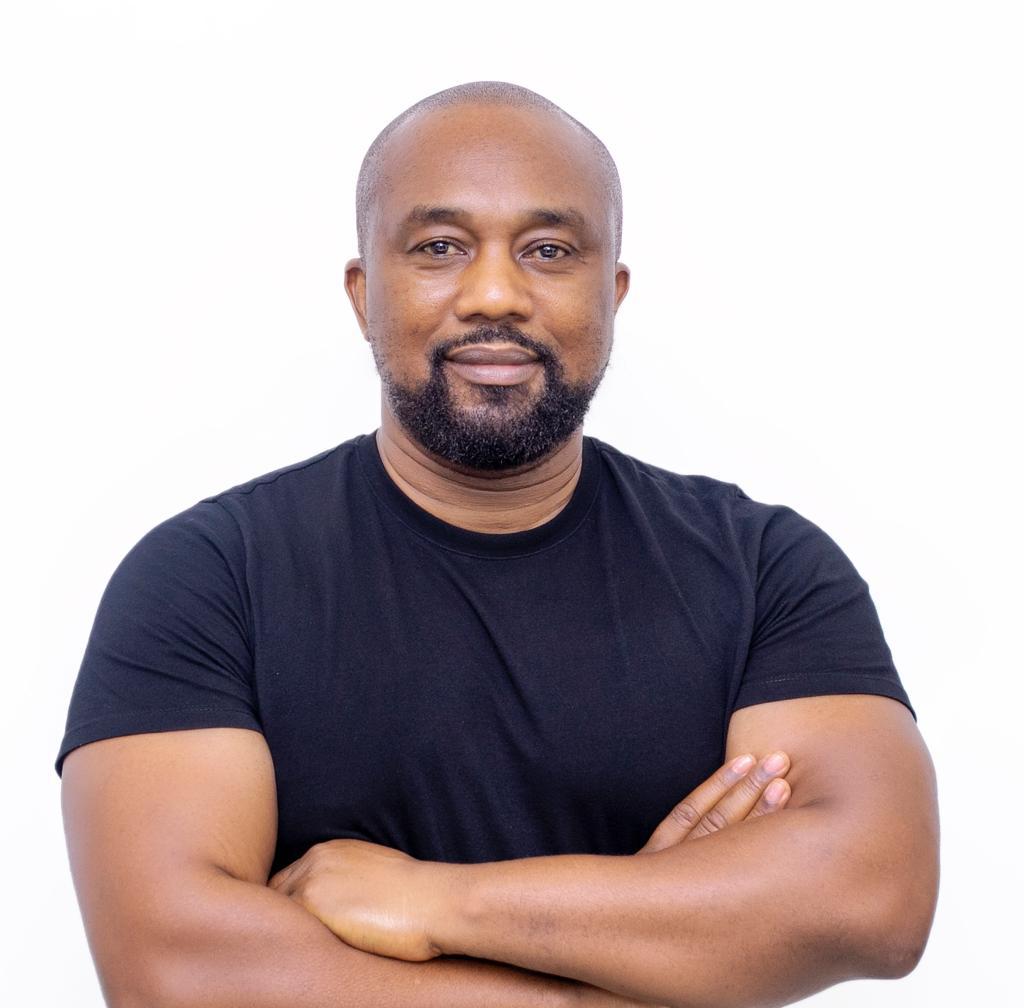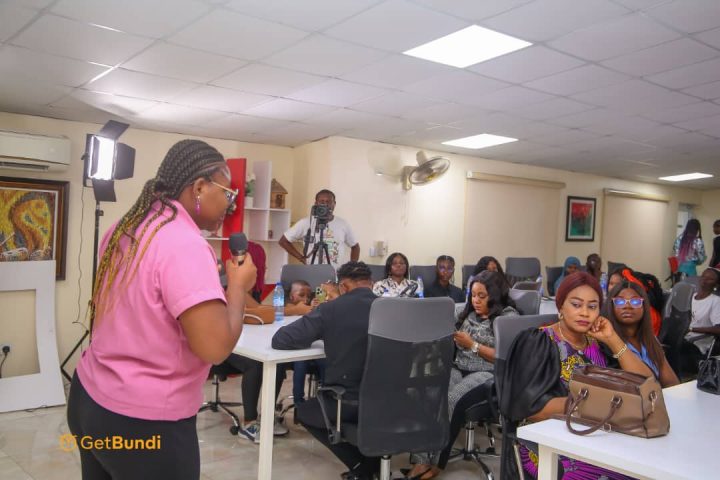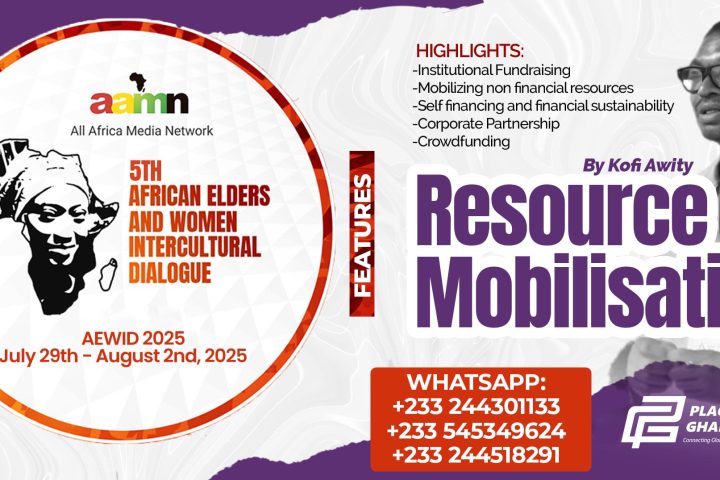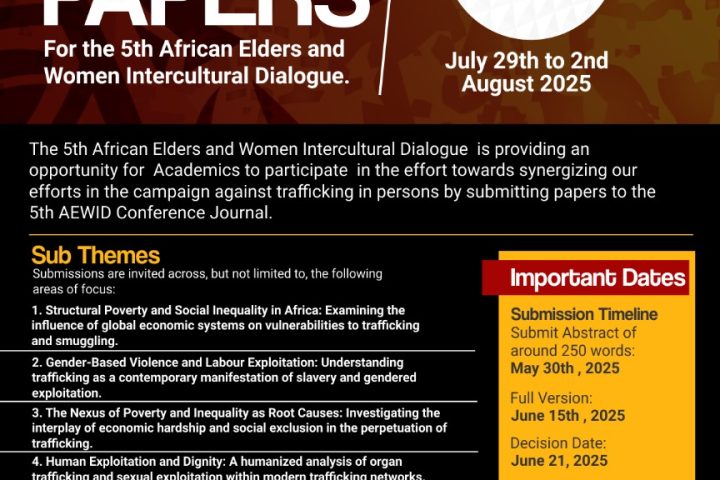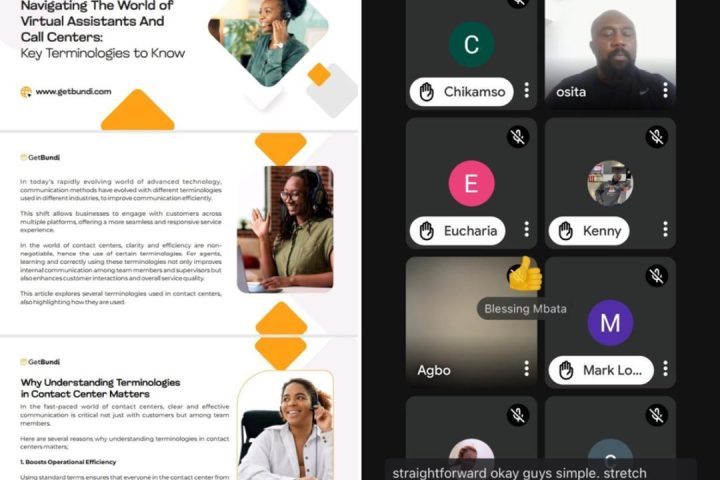With digital skills predicted to be a requirement for 9 out of 10 jobs in the next decade, lacking these skills may hinder a good portion of approximately 650 million African youths’ global competitiveness. These skills enhance and empower them to contribute to technological advancements in the world and the economic growth of the continent.
Osita Oparaugo is the founder of GetBundi, an education technology (Edtech) platform. In this interview with TechCabal, he discussed his role in addressing Africa’s youth unemployment by empowering them with technology-driven learning opportunities, as well as making quality STEM and digital skills education accessible to African youths at an affordable cost. Excerpts:
Tell us about your background and your journey into the tech industry.
I am a lawyer by profession. I pursued my legal studies at The University of Buckingham in the United Kingdom and was subsequently called to the Nigerian bar. My venture into the tech sphere commenced in 2014, beginning with Footprint to Africa, a media and investments company, followed by Ogelle, Africa’s pioneer user-generated video-sharing platform. Currently, I am actively involved in GetBundi Education Technology, which focuses on STEM and Digital Skills.
As a commercial lawyer operating across Africa, my experiences exposed me to the significant challenges facing the continent, particularly the soaring youth unemployment rates. Upon careful analysis, I consistently arrived at one solution: developing technology-driven solutions that empower young individuals to learn and innovate on a large scale.
What inspired the creation of GetBundi?
My inspiration to launch GetBundi stemmed from witnessing the extraordinary creativity of African youths. I firmly believe that with the right opportunities, African youths possess the potential to become proficient digital natives, capable of leading the global digital transformation.
Unfortunately, the lack of commitment from the continent’s leaders and education stakeholders to promote Science, Technology, Engineering, and Mathematics (STEM) education from the early stages of learning has hindered this progress.
This is precisely why I established GetBundi as an education technology platform specialising in STEM and Digital Skill education.
Our mission is to bolster the post-primary education system across the continent by leveraging technology to make high-quality STEM subjects accessible to every student. Additionally, our Digital Skill courses equip African youths with the essential digital skill sets required to thrive in the modern economy.
How would you describe GetBundi’s mission and vision?
Our mission with GetBundi is to make quality Digital Skills education for the youths and STEM subjects for post-primary school students available across Africa at a highly subsidized fee, and through GetBundi Education Foundation, to support those who are potentially left behind, especially girls, internally displaced students, disabled and the refugees.
Our vision is to be the go-to platform for STEM and Digital Skills education in Africa.
What specific STEM and digital skills does GetBundi focus on?
We have about 1,008 hours of STEM subject audio-visual content covering the entire six years of secondary school education, with 6,000 multiple choice questions, 1000 questions for each year, and 3 years of revision for competitive examinations like WAEC etc.
Quality content created by proficient educationalists using West African syllabus.
Our Digital Skills program is offering courses to African youths aged 18-35 on over twenty (20) digital skill sets like data science, artificial intelligence, web development, motion graphics etc. We target to up-skill 10 million African workforces under our initiative The GetBundi Vision 2034, which aligns with the African Union Agenda 2063.
Can you explain how GetBundi contributes to Africa’s development through technology?
Our platform mitigates the greatest challenges faced by post-primary school students and youths across Africa. Cost, access, and quality. By massifying quality STEM subjects for secondary school students and Digital Skill education for the youths across Africa, we are empowering African youths to lead and commercialize innovation.
The present post-primary education system in Africa is flawed. It doesn’t give the students the right understanding and appreciation of STEM subjects hence they stay away from science-related courses at higher levels of education. That is why not more than 20% of Africans who enter universities each year pursue careers in sciences.
International Finance Corporation (IFC) predicts that there will be about 230 million digital skill job gaps across Sub-Saharan Africa by 2030.
The good news is that with the help of technology, GetBundi will be able to train millions of Africans in various digital skill sets to support the digital transformation of the continent.
Our platform is robustly engineered by one of the best developers in the United States with authentic and original compelling learning courses for post-primary school students and digital skill courses for the youths.
Furthermore, our digital skills training methods curriculum is developed for the tech industry, by the industry to make any student who passes through out institution job-ready. With the ongoing conversation between GetBundi and Auziio consult, representatives of First Genesis Inc, we are confident to provide internet access to millions of Africans even in the remotest areas to access the GetBundi platform.
First Genesis Inc. has two patented solutions Xenese for distributed ledger platform (DLP) and Proto Actor model that breaks down the energy boundaries which makes our platform cheap at scaled-up performance. We are ambitious about Africa’s future in science technology and innovation.
What distinguishes GetBundi from other online educational technology platforms?
GetBundi’s evolution sets it apart. Initially centered around digital skill education in the College of Technology model, we conducted in-depth research. It revealed that the root cause of low-level digital skill sets among African youths is their struggle with STEM at primary and post-primary levels.
We halted our launch to develop high-quality content to support the post-primary school system. Now, we are confident in our transition to science, technology, and innovation studies.
Could you highlight some success stories or achievements of students who have utilized GetBundi?
GetBundi is set to launch officially for commercial use on January 24, 2024. In our 2023 operations and as part of our product introduction, we partnered with the Lagos State Government to support senior secondary school students at Wesley Girls Secondary School in Yaba, Lagos State, Nigeria, during their final year examinations revision.
The testimonials from both students and teachers are available on the platform for everyone to access. Additionally, we successfully trained 500 African women in coding under the GetBundi Education Technology Foundation’s TechSis 2023 initiative, and their testimonials are also accessible on our platform.
What does the future hold for STEM education in Africa?
The future of STEM education in Africa brims with potential for growth and development. By investing more in infrastructure, technology, and teacher training, we can enhance STEM learning opportunities. Collaborating with global initiatives and fostering local innovation will be pivotal in shaping a robust STEM landscape across the continent.
The expansion of STEM education in Africa promises to foster innovation, spur economic growth, and address societal challenges. Efforts to enhance infrastructure, increase access to quality education, and raise STEM awareness are critical steps in nurturing a skilled workforce and driving technological advancements throughout the continent.
What obstacles did you encounter while establishing GetBundi, and how did you surmount them?
We faced a myriad of challenges. Surprisingly, aside from the scarcity of finances, the lack of technical skills among technicians hindered course development (content production), and the difficulty in recruiting high-quality STEM and Digital Skill teachers was a hurdle.
The extensive screening process took more than 6 months to complete. Initially, we intended to exclusively engage African educators, but midway, we opted to incorporate foreign tutors to complement the exceptional educators from across Africa who were part of this journey.
Remarkably, some of our students appreciate the multicultural and multiracial team, benefiting from the expertise each party brings, particularly in fields like web development and artificial intelligence. One of the challenges turned into a silver lining for us.
Could you provide insights into the GetBundi Education Foundation’s role?
The GetBundi Education Foundation is dedicated to supporting those who might otherwise be left behind, such as girls, internally displaced students, disabled individuals, and refugees who may struggle to afford our courses.
Each year, we commit 10% of our earnings to the foundation’s operations and welcome donations, collaborations, and support from organizations aiming to make a significant social impact in STEM and Digital Skills education development throughout Africa.
How crucial is it for African youth to acquire digital skills in the modern world?
Acquiring digital skills is paramount for African youth in today’s world as it enhances employability, fosters innovation, and drives economic development. In the rapidly evolving digital landscape, work dynamics are shifting due to digital advancements.
With digital skills predicted to be a requirement for 9 out of 10 jobs in the next decade, lacking these skills may hinder African youth’s global competitiveness. These skills empower individuals to navigate the global job market and contribute to the continent’s digital transformation, playing a pivotal role in shaping Africa’s socio-economic future.
Some research predicts that in the next decade, 9 out of 10 jobs will require digital skills. Without these skill sets, African youth may struggle to compete globally, despite their numerical advantage.
Digital skills empower individuals to navigate the global job market and contribute to the digital transformation of various industries, ultimately playing a pivotal role in shaping the future of Africa’s socio-economic landscape.
